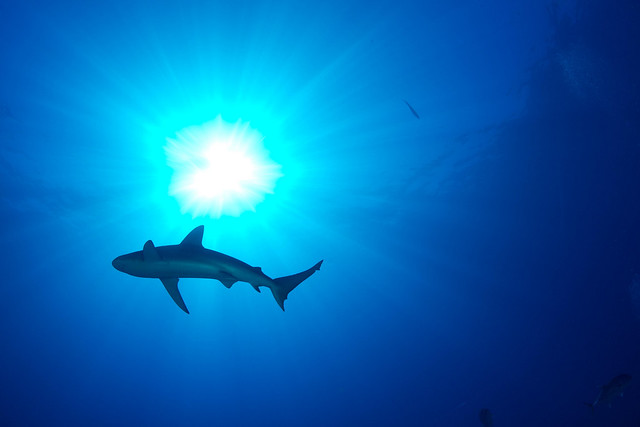
Agadir, Morocco - This year’s meeting of the International Commission for the Conservation of Atlantic Tunas (ICCAT) has been a tale of two giants of the open ocean: tunas and sharks, with contrasting outcomes for each.
ICCAT, which manages tuna and tuna like species across a quarter of the global ocean surface, was hailed by conservation groups for heeding scientific advice and leaving fishing quotas for endangered Atlantic Bluefin tuna unchanged for 2013.
This contrasts with many years of increasing quotas, which scientists claim have driven the species to near extinction levels.
The decision, made during week-long talks in Morocco, one of ICCAT’s biggest tuna fishing nations, was perhaps all the more significant given indications of a population increase in bluefin tuna in the East Atlantic and Mediterranean this year, for the first time in the last decade.
ICCAT’s own scientists however warned that the speed and extent of the detected recovery were unknown. The quota was kept at the upper limit of their recommendation for a total catch within the range of 12,900 t to 13,500 t annually to ensure one of the world’s most valuable fish species could continue its recovery.
However the news from the ICCAT meeting was less good for sharks, also caught by member fishing nations both as targetted species and as bycatch (marine life that is incidentally caught by vessels targeting other species).
The body again failed to reach consensus on protection measures for porbeagle sharks, one of the most vulnerable species caught in ICCAT fisheries. Porbeagle has commercial value for its large fins and meat and is taken both in directed fisheries and as bycatch.
There was failure also in attempts to set a catch limit for shortfin mako sharks, despite scientific advice. This highly vulnerable species is at threat from target fisheries as well as those fisheries taking the sharks as bycatch.
“We are particularly disappointed in ICCAT’s repeated failure to heed scientific advice and set limits on exceptionally vulnerable and valuable mako sharks, and yet encourage the U.S. and EU to continue to strive for this important goal,” said Sonja Fordham, President of Shark Advocates International.
The next opportunity to protect these sharks will be at the meeting of the Convention on International Trade in Endangered Species of Wild Fauna and Flora (CITES) in March 2013.
There was also disappointment as ICCAT again failed to strengthen its ban on shark finning, the practice of slicing off a shark's valuable fins while discarding the carcass. The US, Brazil and Belize had pushed for a prohibition on removing fins at sea, but were blocked by China, Japan and Korea. The EU Parliament votes on Thursday this week to end shark fin removal at sea in favour of the so-called 'fins naturally attached' method.
- Progress in implementing an electronic catch documentation scheme for bluefin tuna to drive compliance and help combat illegal and unreported fishing, especially in the Mediterranean Sea.
- Groundbreaking agreement to re-negotiate the ICCAT treaty, to include a first-time mandate for the conservation and management of sharks.
- Modest improvements to port measures to combat illegal fishing. All vessels will now be required to provide information about their catch before entering port, and governments will have minimum requirements to inspect those vessels in port. Unfortunately, port governments will not be obligated to deny vessels landing, transshipment or access rights even if found to have fished illegally.
“While we’re pleased that ICCAT supported efforts to help rebuild bluefin populations, it’s regrettable that the commission couldn’t achieve consensus on immediate protective measures for sharks,” said Susan Lieberman, director of international policy at the Pew Environment Group. “While there was progress toward putting in place an electronic system to track bluefin tuna, it is disappointing that ICCAT only made limited progress in overall efforts to stop illegal fishing.”
Notes:
ICCAT is a regional fisheries management organization (RMFO) responsible for approximately 30 species of fish in the Atlantic Ocean and adjacent seas such as the Mediterranean. Delegates met in Agadir, Morocco from Nov. 12-19 to negotiate a variety of conservation measures for tunas and severely depleted and threatened ocean species.
The next tuna RFMO meeting, the Western and Central Pacific Fisheries Commission, convenes in Manila from December 2-6. There are important decisions to be made on strengthened conservation measures for tropical tunas in the Pacific and shark conservation.
Photo courtesy of USFWS via Flickr (CC BY 2.0)
